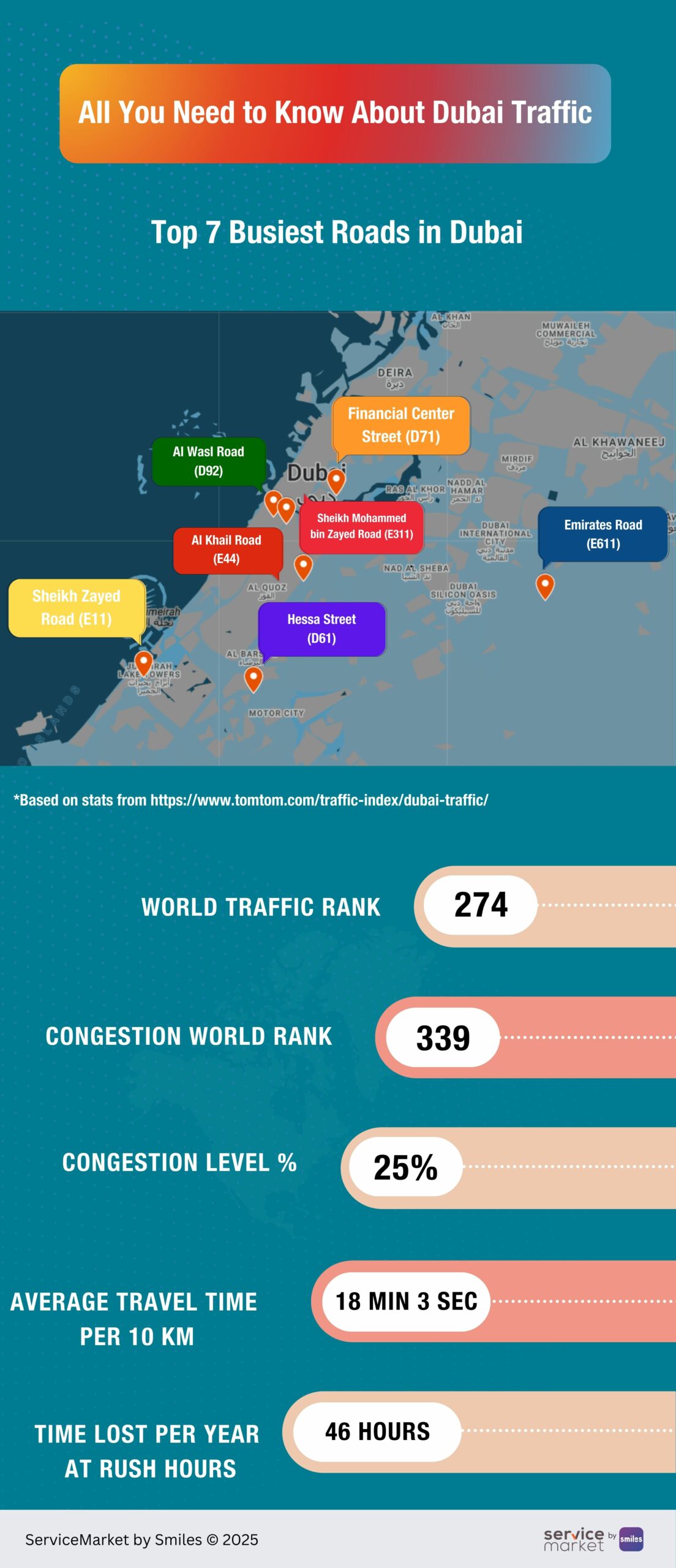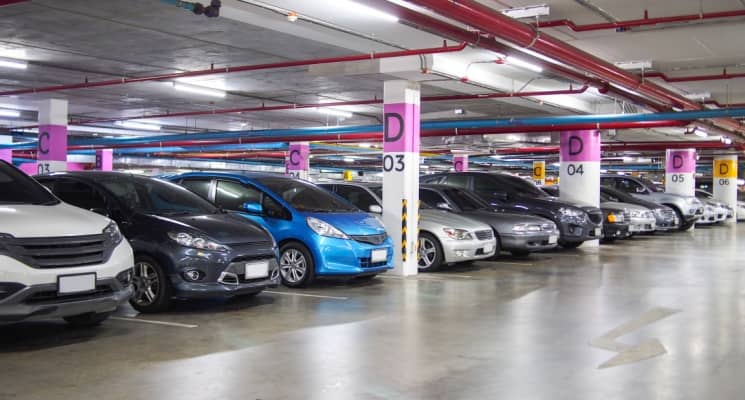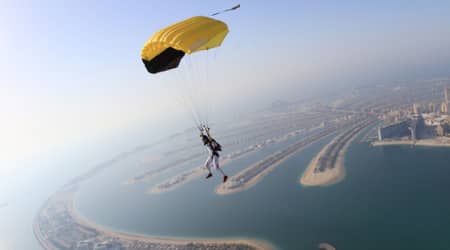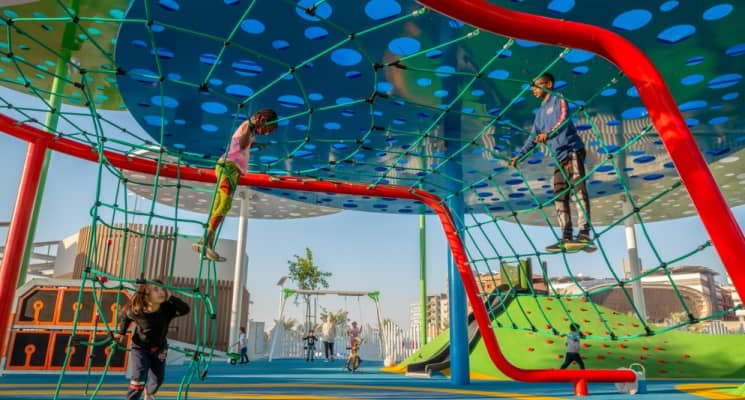Are you considering moving to Dubai? With heavy traffic and blockages on certain routes, commuting through the city can be stressful. If you plan to shift your home or office to another neighborhood, understanding traffic-free routes will make things a lot easier. For an efficient moving process you can hire professional movers in Dubai.
Go through this blog to get information on the busiest roads in Dubai and the peak traffic hours.
What Are the Busiest Roads in Dubai?
According to the TomTom Traffic Index, the average time to travel 10 kilometers during peak periods has increased by 30 seconds in the past year.
Due to the growing population and an influx of tourists, Dubai has seen a significant increase in traffic, often resulting in traffic congestion. To manage that, the government has introduced variable Salik rates to regulate traffic flow efficiently.
If your next question is ‘What are peak traffic hours in Dubai?’, the answer is simple: avoid the rush hours. Mornings from 7 AM to 10 AM are the busiest as people commute to work and school. Evenings see a similar surge when offices close and residents head home. Weekend traffic (Thursday and Friday evenings) also spikes as people go out for dinners and entertainment.

1. Sheikh Zayed Road (E11)
It is the longest highway in Dubai and is known to be the busiest road in the city. There are iconic skyscrapers, business districts, and landmarks along this road. As a result, it has a consistently high traffic volume, especially during peak hours (mornings and evenings), so it is better to avoid using it during those times. Some of the major commercial and residential areas that this road connects to are:
- Downtown Dubai
- Business Bay
- Dubai Marina
- JLT
2. Sheikh Mohammed bin Zayed Road (E311)
Formerly, this road was known as the Emirates Road. It connects Dubai to other cities, making it one of the busiest highways. Being a main highway, you will encounter heavy vehicles and a lot of public transportation on this road, making it very busy. Also, traffic volumes have increased in recent years because of multiple residential developments.
It is a key route for inter-emirate travel and is frequently used by residents and visitors traveling through:
- Sharjah
- Ajman
- Ras Al Khaimah
3. Emirates Road (E611)
Stretching 110 km, it is a major roadway used for commuting between Dubai, Abu Dhabi, and the Northern Emirates. It opened a few years back to improve the linkage between urban communities in other emirates, which is why you are likely to face traffic congestion at the entry and exit points to the following:
- Sharjah
- Ajman
- Umm Al Quwain
4. Al Khail Road (E44)
Travelers who want to avoid using E11 often prefer this route, which causes congestion around intersections. This expressway is parallel to the Sheikh Zayed Road and connects business, industrial, and residential sectors like,
- Business Bay
- Al Quoz
- Dubai Creek Harbour
5. Hessa Street (D61)
As it connects to multiple communities, this street witnesses severe traffic jams during the morning office and school timings and evenings when residents return to their homes. Though it passes through many residential areas, the following are the main areas that are linked through this road:
- Al Barsha
- Jumeirah Village Circle (JVC)
- Dubai Marina
6. Al Wasl Road (D92)
It is a long two-way road located on the west side of Dubai. The road attracts a high volume of residents and visitors because of the numerous recreational, residential, and commercial spaces connected to it. The road passes through various neighborhoods, including:
- Umm Suqeim
- Jumeirah 1
- Al Bada’a
- Al Safa
- Al Wasl
- Al Manara
- Umm Al Sheif
7. Financial Center Street (D71)
This road is also one of the primary routes and runs parallel to E11 going through Dubai’s central business district, including numerous corporate offices, commercial establishments, and financial institutions. The road passes through
- Downtown Dubai
- Dubai International Financial Centre
- Business Bay
- Jumeirah
- Al Wasl
Which Are the Fastest Roads in Dubai?
These highways and expressways in Dubai have higher speed limits:
- Sheikh Zayed Road has a 120 km/h speed limit.
- Emirates Road sets a speed limit of 110 – 120 km/h.
- Mohammad Bin Zayed Road has a speed limit of 110 km/h.
- Dubai-Al Ain Road has a 120 km/h speed limit.
- The Expo Road’s speed limit is 100 km/h.
These guidelines will help you easily navigate the city and save considerable time. If you are planning a home or office move, no worries. You can get free quotes from experienced movers on ServiceMarket for a hassle-free process.







